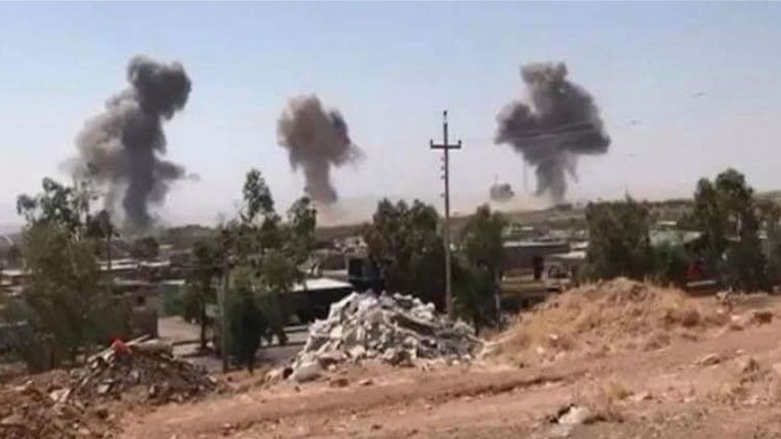Kurdish leader calls on the West to stop Iran's attacks on opposition groups

ERBIL (Kurdistan 24) – While marking the 30th anniversary of the assassination of one of its leaders on Friday, the Iranian opposition group known as the Kurdistan Democratic Party (KDP-Iran) called on the international community to protect Kurds from attacks by Tehran.
“As Ghassemlou used to say, the Kurdish problem in Iran has no military solution. It is still the message that the Iranians do not want to hear,” said Asso Hassan Zadeh, Deputy Secretary General and Spokesperson of the KDP-Iran in a statement.
Dr. Abdul Rahman Ghassemlou was assassinated in Vienna on July 13, 1989, by those suspected to be Iranian agents.
US Special Representative for Iran and Senior Policy Advisor to the Secretary of State Brian Hook said last year while serving as the State Department’s director of policy planning, that “Iranian operatives, using diplomatic cover,” killed the Kurdish leader and two others.
According to Zadeh, three decades after the murder of Ghassemlou, nothing has really changed for the Kurds in Iran.
“Iranian Kurdistan [Rojhilat] is still under siege and Iranian Kurds are still victims of repression and discrimination,” he said. “During all these years, we have always preferred the political and peaceful means of struggle. But the Islamic Republic has given no other answer to our legitimate demands than that of negation and terror.”
“In these circumstances, we expect the international community, including the United States and Europe, to give a clear warning to the Islamic Republic to refrain from repeating the crime it committed on September 8, 2018,” he added.

In September, the Islamic Revolutionary Guard Corps (IRGC) used land-to-land missiles across a 220-kilometer distance to target the headquarters of the KDP-Iran and the Democratic Party of Iranian Kurdistan (PDKI) outside the town of Koya, in Erbil Province. The attack killed 16 and injured 42 more.
At the time, Nikki Haley, then-US Ambassador to the United Nations, denounced Iran’s military strike into “Iraqi territory” at a UN Security Council meeting, adding that Iran “has shown a total disregard of the sovereignty of a country that is at a critical stage in its political development.”
Following the missile strike, clashes between the IRGC and Iranian Kurdish groups declined.
On Friday, however, the IRGC claimed it had targeted Iranian Kurdish opposition groups again with missile strikes following deadly clashes that took place this week between its soldiers and various Kurdish opposition groups in the Iranian provinces of Kermanshah (Kermashan) and West Azerbaijan.
Read More: Iran says IRGC killed 'large number' of fighters based in Kurdistan Region
“At this very moment when we are celebrating the memory of our leader who died for peace, the army of the Revolutionary Guards bomb the bases of our peshmergas in the Berbezin border mountains, without sparing Iraqi Kurdish civilians,” Zadeh said.
“Furthermore,” he continued, “the Iranian regime’s forces threaten to hit again the camps... in Iraqi Kurdistan,” where not only the group's members live, but also their families.
On Friday, Iran’s Defense Minister Amir Hatami said, “Any enemy… intending to violate the territorial integrity” of Iran “will be met with a decisive” response.
Iranian Kurds express concern that they have been forgotten by the international community, just as Iranian attacks and threats continue to target the opposition groups.
“We can hardly understand that Americans and Europeans are so sensitive to the destabilizing behavior of the Iranian regime in the Gulf, but are so indifferent and silent when it comes to what the Iranian regime is able to do against us in Iraqi Kurdistan,” Zadeh concluded.
Editing by John J. Catherine
